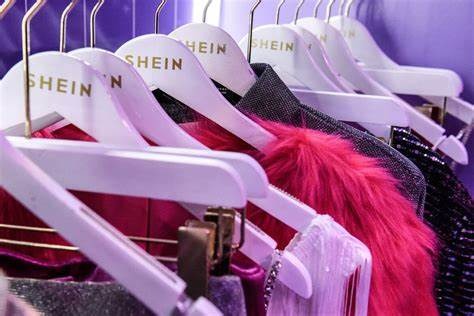


Image Credit: Bloomberg
Shein's executive chairman remains committed to the company's plans for a public listing, despite facing scrutiny from President Donald Trump’s trade policies aimed at addressing global trade imbalances. Donald Tang, a former Bear Stearns banker, explained in a recent interview that going public would help Shein gain public trust and increase its transparency, particularly as the company has faced accusations of tolerating labor violations among its Chinese suppliers.
Tang spoke in London weeks after investors suggested Shein might need to reduce its valuation by over two-thirds, bringing it to about $30 billion. He declined to comment on the company’s current valuation. As Shein pushes forward with plans for an IPO, it is navigating challenges posed by the Trump administration's proposal to end the "de minimus" exemption, which currently allows small goods imported from China under $800 to be duty-free. This exemption has allowed Shein to sell inexpensive items like $8 T-shirts and $12 dresses, but the loss of this exemption could lead to higher prices, potentially affecting US shoppers.
“We want to ensure that customers are not impacted by whatever challenges arise,” Tang said, noting that Shein had not yet seen signs of a slowdown in US demand. To manage costs, the company plans to consolidate shipments and reduce waste. However, Tang cautioned against stockpiling goods in the US, as it could lead to excess inventory and increased operational costs, including warehousing and financing. He also noted the environmental impact of unsold merchandise being sent to landfills.
Tang assured that Shein would comply with any new regulations and "find a way" to protect customers. He expressed confidence that the company could navigate these challenges successfully. Founded in China and now based in Singapore, Shein has been diversifying its supply chain by encouraging some of its Chinese suppliers to establish production facilities in Vietnam. Some suppliers also have factories in Brazil.
Shein’s rapid production pace and low prices have disrupted the global retail market, particularly online fashion brands. However, this growth has attracted scrutiny, including allegations of exploitative labor practices in Chinese factories, where workers reportedly endure long hours and face fines for mistakes. Tang emphasized that Shein has a “zero-tolerance” policy towards forced labor and child labor, and any factories found violating these rules are terminated.
The company, which was valued at $66 billion during a 2023 funding round and as much as $100 billion in 2022, filed for a confidential IPO in London in June. Tang reiterated that going public would help Shein build public trust, which he sees as essential for the company's growth. However, he said he wasn’t sure when Shein would receive approval from UK and Chinese regulators for the listing. He also denied reports that Shein had requested approval from the UK's Financial Conduct Authority to float less than 10% of its shares.
